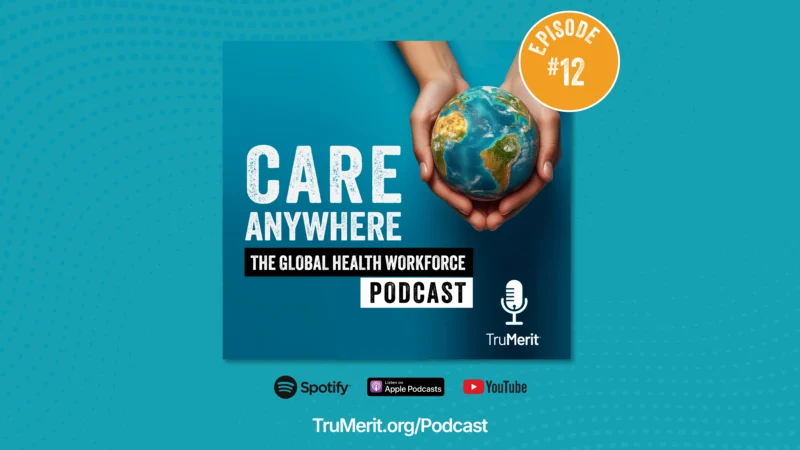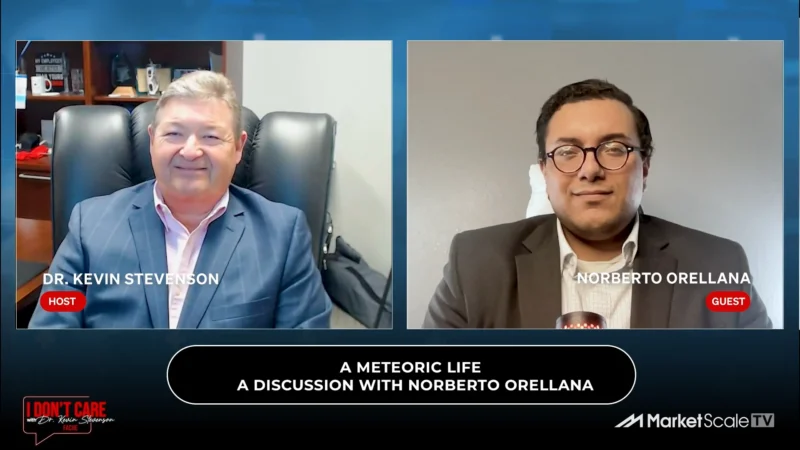Invest in Health Equity or Healthcare Will Fail
A lack of health insurance can be detrimental to anyone if there is any medical emergency or accident that occurs in that span of time. Healthcare costs are high even with insurance. Without insurance? Astronomical and simply unaffordable for many. So, it should come as a concern that in 2021, 8.6 percent of Americans did not have health insurance. That’s almost one in every ten people.
What needs to be done today to improve health equity and ensure everyone has access to appropriate medical care and services?
On today’s episode of Healthcare Rethink, Host Brian Urban speaks with Dr. David Nash, Founding Dean Emeritus, Jefferson College of Population Health, Dr. David Ansell, Senior VP for Community Health Equity at Rush University Medical Center, and Dr. Omar Lateef, President and CEO, Rush University Medical Center, to discuss how health equity has gained traction since the COVID-19 pandemic, what consequences inequalities in health access create, and what changes have been stirring the past few years to address this gap.
The group also discussed…
- Lateef’s 2021 investment in health equity education, workforce development, community-based clinical practice, and health equity research
- How the Jefferson College of Population Health is creating health equity-conscious doctors, nurses, and pharmacists as leaders
- How the health equity institute partnership with Vimo will facilitate meeting basic needs of individuals in the U.S. through its work
Dr. Lateef explained how COVID-19 has highlighted the importance of health equity. “All of a sudden, it seems to folks like Ansell and Nash that the world is finally understanding how important it is to have equitable access to care, access to procedures, access to primary care doctors, access to safe border, food, all the rest, and the amazing impact that all of these factors have on health.”
“So, we created, with a generous donation from Vimo Financial, a health equity institute that’s not only about solving the problem, but training the next generation of healthcare leaders who will help solve the problem as well,” Dr. Ansell added.
Dr. Nash brought up Jefferson College of Population Health is facilitating adoption of health equity in their curriculum for tomorrow’s health leaders.
“The mission of the school is to continue to build a different type of leader for the future, where the issues that Dr. Ansell and Dr. Lateef described about the social determinants of health, racial discrimination, putting these issues deeper into the medical curriculum nursing curriculum, and pharmacy curriculum. And we do that in all kinds of ways. Online master’s degrees…building relationships with many other schools, research in this area, our scholarly peer-reviewed journal, our annual conference, my book…this is a generational issue which were not going to fix tomorrow, but we now have more than a decade of helping to create a different kind of leader for whom these issues are a core part of their training,” he stated.
Dr. David Nash is Founding Dean Emeritus of Jefferson College of Population Health and Dr. Raymond C. and Doris N. Grandon Professor of Medicine at Thomas Jefferson University. He has a BA in Economics from Vassar College, an MD from the University of Rochester School of Medicine and Dentistry, and an MBA from The Wharton School. Dr. Nash is a board-certified internist, has held a variety of governance positions, and has earned a multitude of accolades such as the Philadelphia Business Journal Healthcare Heroes Award and honorary distinguished fellow of the American College of Physician Executives.
Dr. David Ansell is Senior VP for Community Health Equity at Rush University Medical Center and was the first Chief Medical Officer there while serving as associate dean and senior vice president for clinical affairs. Prior to working at Rush, Dr. Ansell was chairperson of the Department of Internal Medicine at Chicago’s Mount Sinai Hospital. He co-founded the Sinai Urban Health Institute, helped establish the nonprofit Metropolitan Chicago Breast Cancer Taskforce, and helped create the Center for Community Health Equity in Chicago. Dr. Ansell is a two-time author and earned his BS from Franklin and Marshall College and his doctoral degree from SUNY Upstate Medical University as well as a master’s degree in public health from the University of Illinois.
Dr. Omar Lateef is President and CEO of Rush Medical University Center and was previously Chief Medical Officer. He is a 2021 recipient of the Mayor’s Medal of Honor in Chicago and has assisted the U.S. Department of Health and Human Services by serving on the National Advisory Council for Healthcare Research and Quality of the Agency for Healthcare Research and Quality. Dr. Lateef’s BS is from the University of Florida-Gainesville and his medical degree is from Des Moines University. Dr. Lateef completed his residency at NYU Downtown Hospital and his fellowship in pulmonary and critical care medicine at Rush University Medical Center.




